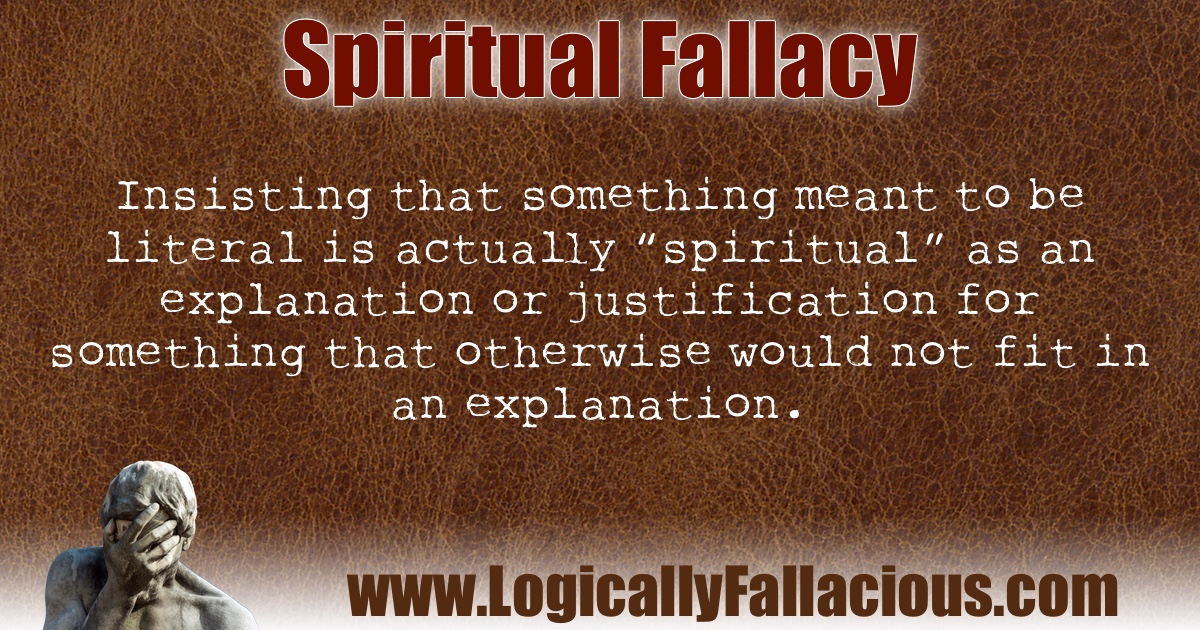(also known as: spiritual excuse)
Description: Insisting that something meant to be literal is actually “spiritual” as an explanation or justification for something that otherwise would not fit in an explanation.
Logical Form:
X makes no sense; therefore, X was meant in a “spiritual” sense.
Example #1:
Of course, the Koran is not a history or science book, but each and every story in it does contain a spiritual truth.
Explanation: Because we cannot define or prove a “spiritual truth”, anything can be a spiritual truth.
Example #2:
Harold Camping, the preacher who predicted the rapture in 2011, said that the rapture actually did come, but it was a "spiritual" rapture. Of course, there is no way to demonstrate this.
Explanation: We can’t use “spiritual” as a get-out-of-jail-free card to cover up an apparent contradiction.
Exception: It is not a fallacy when it is specifically referred to as “spiritual”.
“and drank the same spiritual drink; for they drank from the spiritual rock that accompanied them, and that rock was Christ.” (1 Cor 10:4)
Tip: Next time you get pulled over for speeding, tell the cop you were only “spiritually” speeding. See if that works.

This is an original logical fallacy named by the author.